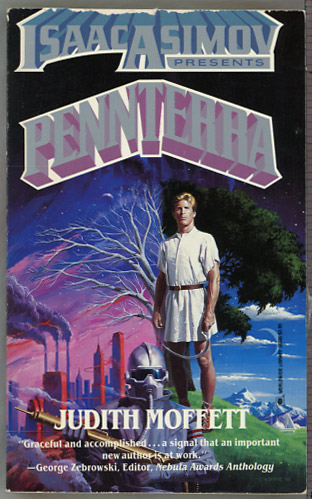
author:
title:
Moffett, Judith
PENNTERRA
book-date: 1988
edn-date:
printing:
format:
cvr art:
cvr price:
GRADING:
1988
1st
Paperback
Vincent Di Fate
$3.95
VG
Spine is slightly dished, with the faintest of lines down length; roughness to top edge of front cover - otherwise very nice. No stamps, marks or writing.
